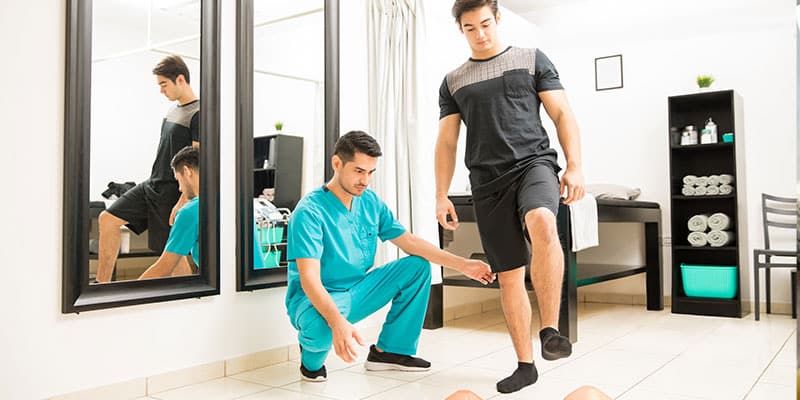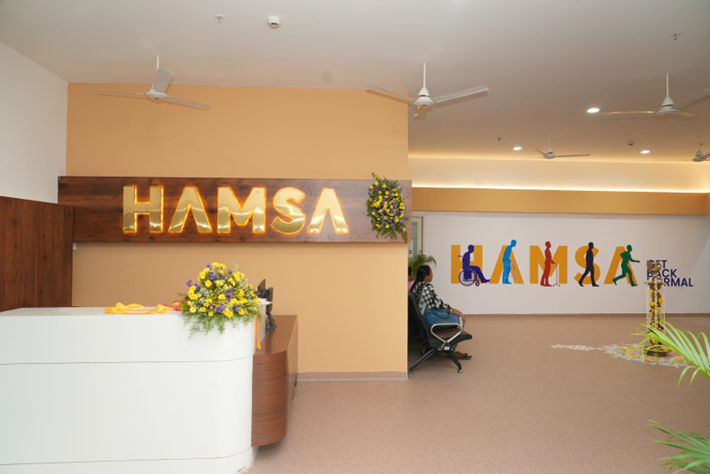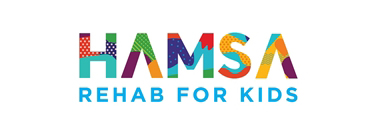
Neurological Disorders: An Overview
A quick look into the stats about neurological disorders reveals two facts:
- At least 1 out of 3 people are affected by neuro diseases at some stage.
- The number of deaths due to neuro disorders and diseases has risen by 40% in the last thirty years.
Fortunately, Neuro Rehabilitation serves as a ray of hope for patients suffering from mild to severe neurological challenges. So, what is Neuro Rehab? It is a program designed and implemented by doctors and rehab experts for treating patients with neurological disorders and diseases.
All neuro-rehab programs have three main objectives:
- To increase the physical functions affected by the disease or disorder.
- To reduce debilitating symptoms.
- To improve the patient's quality of life.
This blog aims to deliver all the must-know information about neurological rehabilitation, the treatment options, and its benefits. Let's explore the details.
Neurological Rehabilitation: When & Why is it Required?
When does one require neurological rehabilitation? The answer is fairly simple. The nervous system controls everything we do- from inhaling, exhaling, and regulating muscle control, to feeling heat, cold, pain, or pleasure.
Any damage to this delicate system can damage the nerves and jeopardise its vital functions. And that's not all. Nerve damage can also occur due to prolonged chronic diseases like Parkinson's, Alzheimer's, cancer, diabetes, dementia, motor neuron, and auto-immune diseases.
The following signs and symptoms indicate the need for neuro rehab, even after the initial stages of medical treatment.
- Imbalance
- Dizziness
- Difficulty in walking without support
- Inability to participate in regular activities
Neurological rehabilitation helps patients recover from the after-effects of the trauma (like accidents or falls) or diseases. It is the best option to overcome physiological and psychological barriers and discover new ways to improve your lifestyle.
Nerve damage can cause mild or severe after-effects. However, the good news is that neuro-rehab is the best solution for several neuro conditions.
List of Neuro Conditions That Benefit From Rehabilitation
1. Infectious diseases
Meningitis, Polio, Encephalitis, and brain abscesses.
2. Vascular disorders
- Ischemic strokes
- Haemorrhagic strokes.
- Subdural haematoma
- Transient Ischemic Attacks (TIA)
3. Neuromuscular or structural disorders
- Carpal Tunnel Syndrome
- Bell Palsy
- Cervical Spondylosis
- Tumours of the spinal cord or brain
- Myasthenia gravis
- Muscular Dystrophy
- Gillian-Barre Syndrome
- Peripheral neuropathy
4. Functional disorders
- Dizziness
- Neuralgia
- Seizures
5. Degenerative diseases
- Parkinson's
- Multiple Sclerosis
- Huntington Chorea
- Amyotrophic Lateral Sclerosis
- Alzheimer's
6. Brain and spinal cord injuries
7. Diabetic Neuropathy
8. Memory and movement disorders
9. Dystonia and epilepsy
10. Herniated disc and Aneurysm
11. Charcot Marie Tooth (CMT)
12. Muscular Dystrophy
There is no one-size-fits-all when it comes to neurorehabilitation. The process differs for each patient and is largely determined by the extent of the nerve damage and the loss of bodily functions. Fortunately, several neurorehabilitation options help patients overcome the challenges and find new ways to cope with their physiological changes.
Treatment Options & Support Specialisations for Neuro Rehab
Neurological rehabilitation treatments are of four types, each serving a special purpose. They are:
- Cognitive treatments to help adapt and recover from the impact of brain injury. This treatment largely focuses on problem-solving, communication abilities, and behavioral aspects.
- Compensatory treatments help use the intact skills to make up for the inadequacy in the affected parts of the body.
- Therapeutic treatments help the patients deal with the trauma that caused the injury and the post-trauma adjustments they have to make.
- Remediation treatments help regain lost skills through consistent, repetitive exercises.
Of late, neurological rehabilitation has been significantly upgraded with the inclusion of rehab devices like wearables, robotic neuro systems, brain stimulators, etc. These devices are used alongside physical rehabilitation to improve the treatment outcome.
Neuro Rehab and its Supporting Specialisations
Neurological rehabilitation is teamwork- a joint effort of experts like doctors, bioengineers, social workers, computer scientists, and therapists. Each neuro program is conceived after in-depth planning and evaluation to fulfill the patient's specific requirements.
Generally, neuro rehab is supported by the following specializations:
1. Physiotherapy
The main objective of including physiotherapy is to help patients overcome their physical inabilities resulting from the disorder or trauma. Consistent physiotherapy enables them to regain the ability to do normal activities, pursue a hobby and sports, improve functionality, and regain the confidence to lead an almost normal life.
2. Occupational therapy
Occupational therapy includes several therapeutic strategies to help patients regain normalcy in their everyday activities. They are called Activities of Daily Living (ADL), which include:
- Dysphagia or self-feeding
- work simplification
- Driving simulation
- Spasticity management
3. Speech and language therapy
As the name implies, speech and language therapy help patients overcome speech impairments caused by a severe stroke, brain injury, and other neurological conditions. The therapy also teaches patients to regain the ability to eat and swallow food, especially if they have any muscle weakness in the throat.
4. Recreational therapy
Recreational therapy is a form of treatment that utilizes recreational activities per the individuals' needs. Recreational therapy aims to help patients rebuild their skills, improve their mood, build social connections, and improve their quality of life.
5. Neurological Physical Therapy
This therapeutic option deals with extensive training to rectify several issues caused by nerve damage, such as:
- Cardiovascular endurance
- Decreased spasticity
- Prostheses or Orthoses
- Gait training
- Postural realignment
- Balance re-training
- Core Alignment
- Visual-perceptual skill training
- Cardiovascular endurance
- Training to use equipment like wheelchairs, crutches, and walkers.
Generally, all neurological rehabilitation programs aim to help patients:
- Develop skills needed to do daily activities to lead a normal life.
- Manage stress, anxiety, and depression.
- Train bladder and bowel control.
- Involve in support groups.
- Learn to use assistive devices for self-dependency.
- Learn safety measures.
- Learn to handle home care requirements.
Rehabilitation also includes pain management and nutritional and vocational counseling.
How do these therapies benefit someone who has had a traumatic accident, fall, brain injury, stroke, or tumors? Here's how.
The 4 Big Benefits of Neurological Rehabilitation
1. Better quality of life
Whether it is because of an accident, fall, or disease, neurological degeneration can drastically change a person's life forever. Hence, the prime objective of rehabilitation is to improve the quality of life for people dealing with these challenges, permanently or temporarily.
There's ample evidence to prove that early intervention slows down the degenerative process. Rehabilitation also improves the chances of reversing whatever functions are reversible and retaining what's still good enough.
2. Customised for individual needs
As already mentioned, there is no standard protocol for neurological rehabilitation. Ideally, rehabilitation should commence immediately after the injury and continue without breaks. The process is beneficial because it is tailored to the patient's physiological inhibitions and requirements.
3. Cost-effective solution
Consistent rehabilitation helps patients regain a semblance of normalcy in their lives. It teaches them skills to stay independent and rely on family, friends, and society when needed. Patients can spend less on hospitals, medication, and expensive medical services.
4. Comprehensive multi-disciplinary care
Very often, neuro-rehab involves the efforts of a multi-disciplinary team that works in coordination to achieve the best possible results. It usually takes place in an acute rehabilitation hospital. Once the treatment is initiated, it is constantly revised and updated to align with the patient's progress. This well-rounded approach helps instill long-term self-dependency and confidence.
A Better Life with Rehabilitation
A neurological rehabilitation program aims to improve your physical, emotional, and social well-being while returning you to the highest level of function and independence. In most cases, patients can get back to living independently, making them happier and more satisfied with their lives.
Hamsa Brain and Spine Rehab in Chennai offer comprehensive rehabilitation for various neurological conditions. We offer both in-patient and out-patient rehabilitation. To know more, please call us today!












